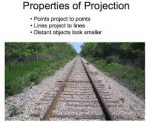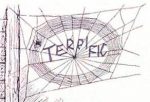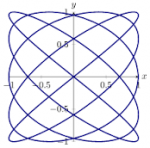I came upon an MIT News article about the work of Ila Fiete who studies brain functions, like the neurological processes that govern navigational reasoning about our surroundings. Fiete uses computational and mathematical tools. Her interest in biology, and her respect for the “aesthetic to thinking mathematically,” (as she put it) led her to […]
|
|||||
|
I’m not completely sure I understand where my desire to grasp the value of abstractions is taking me, but as I think about mathematics, and more recent trends in the sciences, I keep wanting to get further and further behind what our symbolic reasoning is actually doing, and how it’s doing it. I have this […] We all generally know the meaning of abstraction. We all have some opinion, for example, about the value of abstract painting. And I’ve heard from many that mathematics is too abstract to be understood or even interesting. (But I must admit, it is exactly this about mathematics that keeps me so captivated). An abstraction is […] Earlier this month, Nature reported on Artificial Intelligence (AI) research, where deep learning networks (an AI strategy) spontaneously generated patterns of computations that bore a striking resemblance to the activity generated by our own grey matter – namely by the neurons called grid cells in the mammalian brain. The patterned firing of grid cells enable […] I have been particularly concentrated on whether mathematics can tell us something about the nature of thought, something that we have not yet understood about what thought is made from, how it happens, how it is connected to everything else in the universe. These questions inevitably point me in the direction of research in cognitive […] 
Deciphering the principles of self-organizing systems is often at the heart of new ideas in biology, including neurobiology. A complex, self-organizing system contains a large number of elements that have predictable, local interactions with each other, but these local interactions create global properties that cannot be predicted from even the most well-understood local events. This […] 
The slow and steady march toward a more and more precise definition of what we mean by information inevitably begins with Claude Shannon. In 1948 Shannon published The Mathematical Theory of Communication in Bell Labs’ technical journal. Shannon found that transmitted messages could be encoded with just two bursts of voltage – an on burst […] 
Roger Antonsen came to my attention with a TED talk recorded in 2015 that was posted in November. Characterized by the statement, “Math is the hidden secret to understanding the world,” it piqued my curiosity. Antonsen is an associate professor in the Department of Informatics at the University of Oslo. Informatics has been […] When I read the subheading in a recent Scientific American article, it brought me back to some 18th century thoughts which I recently reviewed. The subheading of a piece by Clara Moskowitz’s that describes a new effort in theoretical physics reads: Hundreds of researchers in a collaborative project called “It from Qubit” say space and […] First, I would like to apologize for posting so infrequently these past few months. I have been working hard to flesh out a book proposal closely related to the perspective of this blog, and I will be focused on this project for a bit longer. However, a TED talk filmed in Paris in May came […] |
|||||
|
Copyright © 2025 Mathematics Rising - All Rights Reserved Powered by WordPress & Atahualpa |
|||||


Recent Comments